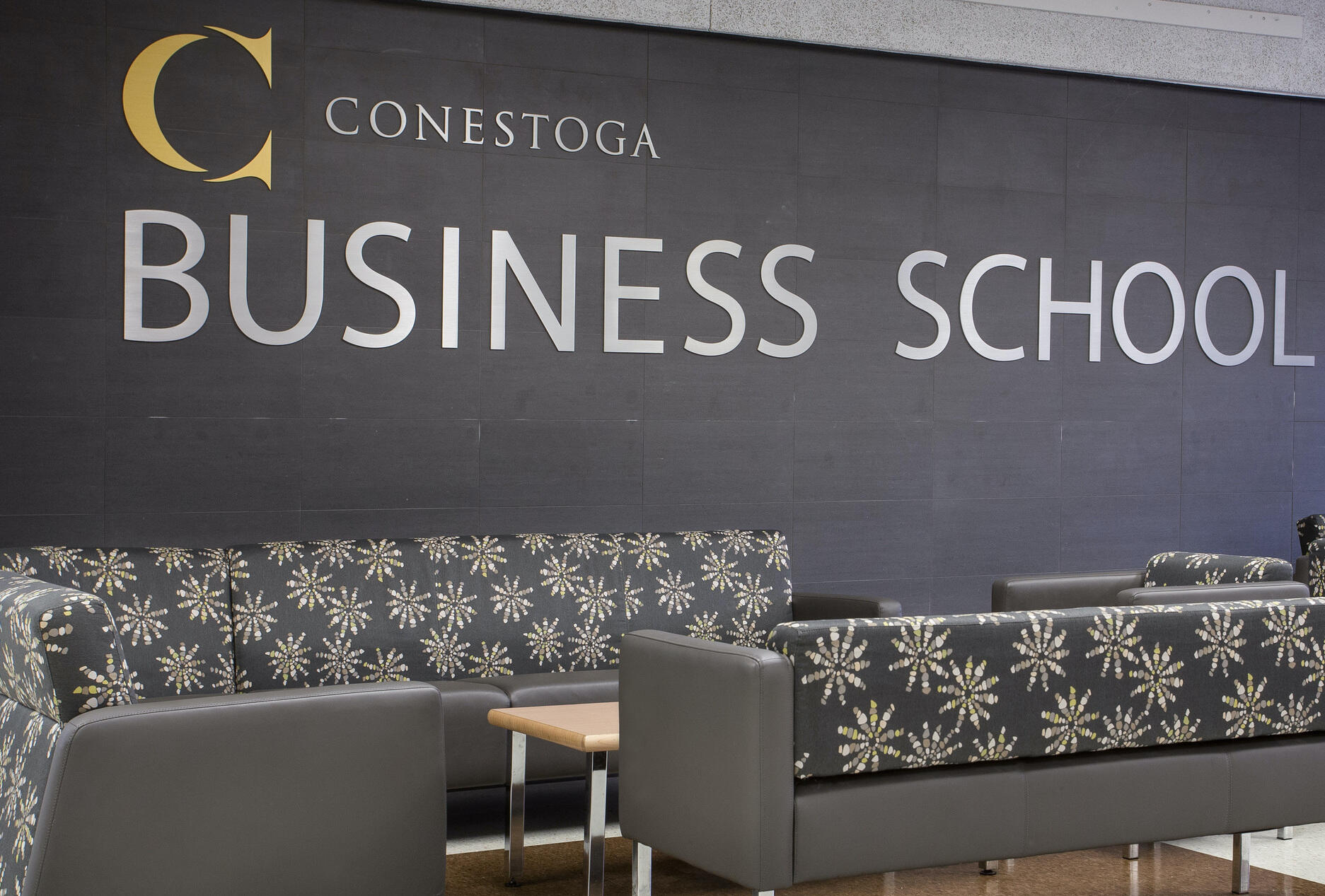Conestoga’s School of Business has joined the Principles for Responsible Management Education (PRME). An initiative of the United Nations Global Compact, PRME is a collegial learning community that aims to raise the profile of sustainability in schools worldwide and equip business and management students with the skills and knowledge to handle the sustainability challenges of the future.

Conestoga’s School of Business has joined the Principles for Responsible Management Education -- an initiative of the United Nations Global Compact.
Established in 2007, PRME now has 800 signatories representing institutions across the globe with Conestoga being one of the first Canadian colleges to join the initiative. By leveraging PRME, Conestoga faculty and students will have access to an international community and network of peers to connect their applied research and work to global issues.
Faculty members Laura Matheson and Rajul Singh will lead PRME activities at the college, focusing on implementation of PRME’s principles. The pair have been actively involved with learning and networking opportunities through PRME and recognize the value in adopting the principles at the college.
“This is a platform to acknowledge and celebrate the success the institution has already achieved,” said Matheson. “We’ve done quite a lot in the last five years around these principles of responsible management so PRME allows us to celebrate the success we’ve achieved, to capitalize on the momentum and move forward as a leader in responsible management education.”
Among PRME’s principles is the commitment to develop the capabilities of students to work for an inclusive and global economy, the adoption of curriculum to support effective learning experiences for responsible leadership, and engagement in research to advance understanding about the impact of corporations in the creation of sustainable social, environmental and economic value.
“We saw that there was a great synergy that exists between what we’re trying to achieve as an institution and what the PRME principles set out to do,” added Singh. “We knew we could use the PRME principles as a strategic framework for ourselves, for our institution and, most importantly, for our students so that we are preparing them to tackle the sustainability-related challenges they will face in the industry.”
Matheson and Singh have started development of a framework for the School of Business with short-term and tactical plans for embedding PRME principles. Their goal is to develop a working model that can be replicated across the college.
A student platform for Conestoga’s Sustainable Business Management program in collaboration with Durham University and Nottingham Trent University in the United Kingdom, and Rowan University in the U.S., has already been established. Students and faculty have also completed Carbon Literacy Training and actively participated in the United Nations-PRME Northeast virtual conference.
As a signatory, the college is required to provide regular updates demonstrating how PRME principles and values have been implemented. These Sharing Information on Progress (SIP) reports will be submitted annually and made available on PRME’s website.
“The School of Business is pleased to join the PRME initiative and looks forward to the exchange of knowledge and practices within our own community as well as the opportunities to explore learning and applied research initiatives with PRME’s global community,” said Gary Hallam, executive dean, School of Business, and vice-president, International.
Conestoga’s School of Business provides numerous options, opportunities and pathways. Programs reflect today’s business needs across a wide range of credentials, from apprenticeships, one-year certificates, two-year and three-year advanced diplomas, to graduate certificates and degree opportunities that include multiple specializations. Career-ready graduates have the skills and knowledge to address real-world needs and make a difference in today’s rapidly changing business world.
